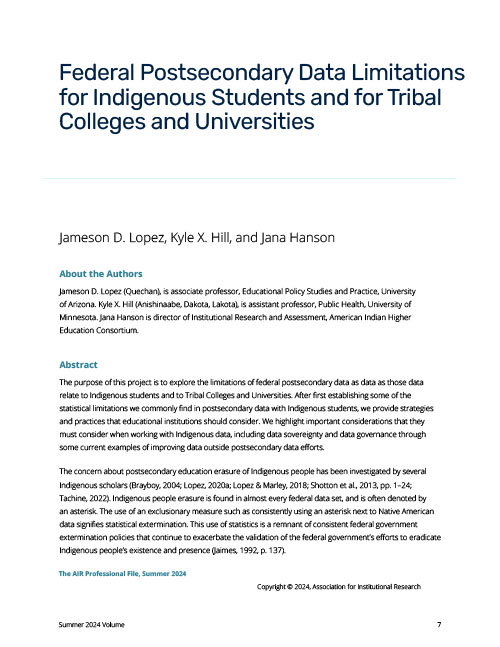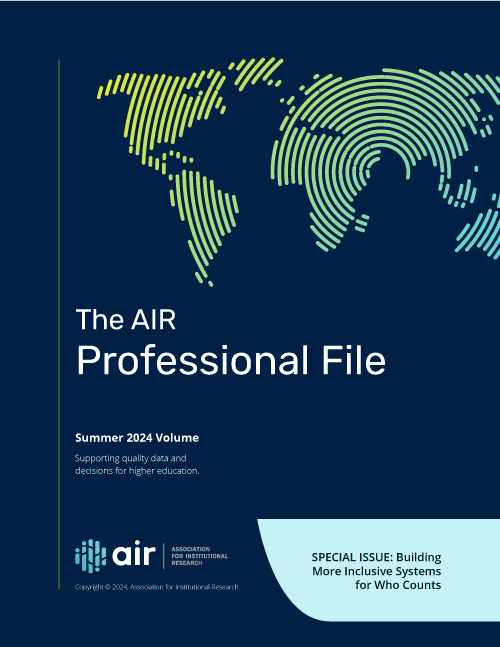The AIR Professional File
Summer 2024, Article 168
Federal Postsecondary Data Limitations for Indigenous Students and for Tribal Colleges and Universities
https://doi.org/10.34315/apf1682024Abstract
The purpose of this project is to explore the limitations of federal postsecondary data as data as those data relate to Indigenous students and to Tribal Colleges and Universities. After first establishing some of the statistical limitations we commonly find in postsecondary data with Indigenous students, we provide strategies and practices that educational institutions should consider. We highlight important considerations that they must consider when working with Indigenous data, including data sovereignty and data governance through some current examples of improving data outside postsecondary data efforts.
The concern about postsecondary education erasure of Indigenous people has been investigated by several Indigenous scholars (Brayboy, 2004; Lopez, 2020a; Lopez & Marley, 2018; Shotton et al., 2013, pp. 1–24; Tachine, 2022). Indigenous people erasure is found in almost every federal data set, and is often denoted by an asterisk. The use of an exclusionary measure such as consistently using an asterisk next to Native American data signifies statistical extermination. This use of statistics is a remnant of consistent federal government extermination policies that continue to exacerbate the validation of the federal government’s efforts to eradicate Indigenous people’s existence and presence (Jaimes, 1992, p. 137).
Through statistical extermination, settler colonialism (Wolfe, 2006) permeates with efforts to control Indigenous peoples within the borders of the United States by treating them as wards of the government. Such efforts are in direct conflict with the recognition of Indigenous people as a political designation, owing to the government-to-government relationship with federally recognized tribal nations, rather than as an ethnological or racial designation. Thus, there is an inherent trust responsibility on behalf of the federal government to protect and promote sovereignty of Native peoples (Bureau of Indian Affairs [BIA], 2024). For these reasons, among others, Native presence and sovereignty (Tachine, 2022) are apex goals of this work to improve the data limitations that exist in currently managed federal postsecondary data sets. Therefore, the purpose of this article is to explore the limitations of postsecondary data as those data relate to Indigenous students and Tribal Colleges and Universities. This article will also provide strategies and suggest practices that organizations should consider related to data sovereignty as well as the students and tribal nations served by Tribal Colleges and Universities.
Authors:
- Jameson D. Lopez
- Kyle X. Hill
- Jana Hanson
Copyright © Association for Institutional Research 2024


